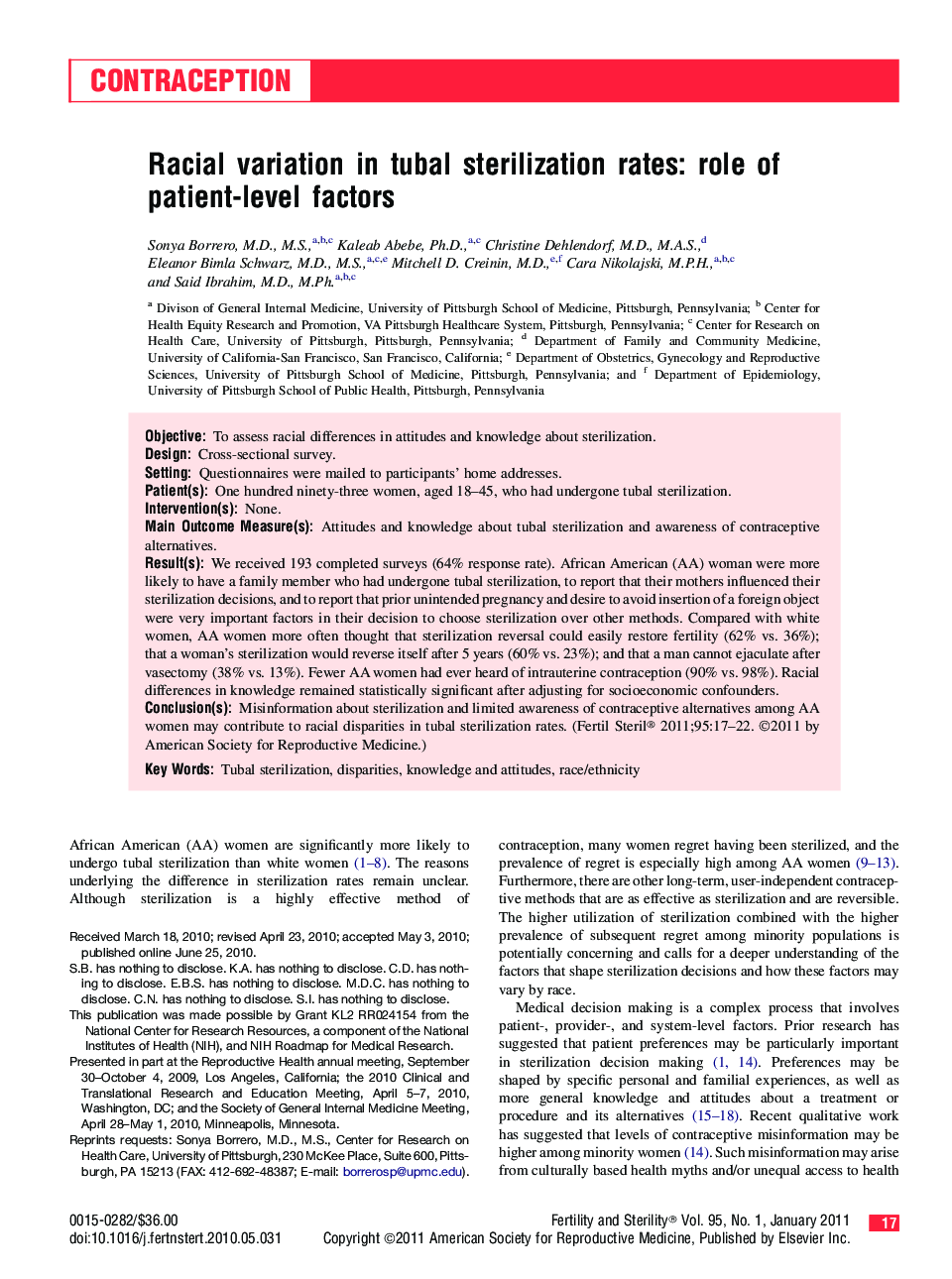| Article ID | Journal | Published Year | Pages | File Type |
|---|---|---|---|---|
| 3932597 | Fertility and Sterility | 2011 | 6 Pages |
ObjectiveTo assess racial differences in attitudes and knowledge about sterilization.DesignCross-sectional survey.SettingQuestionnaires were mailed to participants' home addresses.Patient(s)One hundred ninety-three women, aged 18–45, who had undergone tubal sterilization.Intervention(s)None.Main Outcome Measure(s)Attitudes and knowledge about tubal sterilization and awareness of contraceptive alternatives.Result(s)We received 193 completed surveys (64% response rate). African American (AA) woman were more likely to have a family member who had undergone tubal sterilization, to report that their mothers influenced their sterilization decisions, and to report that prior unintended pregnancy and desire to avoid insertion of a foreign object were very important factors in their decision to choose sterilization over other methods. Compared with white women, AA women more often thought that sterilization reversal could easily restore fertility (62% vs. 36%); that a woman's sterilization would reverse itself after 5 years (60% vs. 23%); and that a man cannot ejaculate after vasectomy (38% vs. 13%). Fewer AA women had ever heard of intrauterine contraception (90% vs. 98%). Racial differences in knowledge remained statistically significant after adjusting for socioeconomic confounders.Conclusion(s)Misinformation about sterilization and limited awareness of contraceptive alternatives among AA women may contribute to racial disparities in tubal sterilization rates.
